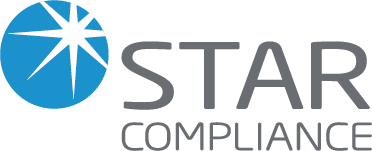What is illegal insider gifting and why is it suddenly a potential problem for financial firms? In this week’s StarBlog, our resident insider-trading expert and Head of Business Development Steve Brown explains how it works and offers advice on how to counter it
Insider trading is one of the most well-known forms of financial malfeasance, but another creative form of market manipulation has recently caught the attention of corporate law academics and government regulators: illegal insider gifting. Insider trading involves trading on the stock market using MNPI. Illegal insider gifting involves gifting public stock to an individual or organization to benefit from the tax deduction that such a charitable action entails. The donation is usually made based on MNPI about how the stock will perform, allowing individuals to manipulate their position in the market by offloading a soon-to-be underperforming asset. Donors also secure tax benefits from gifts by backdating charitable donations or claiming deductions associated with misreported dates.
THE PROBLEM WITH ILLEGAL INSIDER GIFTING
Three main motivations tend to fuel illegal insider-gifting schemes. Inside gifters are able to: (1) write off a larger amount on their taxes than the gifted stock was actually worth; (2) avoid paying capital gains tax on the gifted stock; and (3) accrue reputational benefits from the optics of engaging in altruistic behavior. To be sure, insider trading detection tends to be easier than insider-gifting detection, mostly because clearer regulations and guidelines exist around insider trading. Charitable donations, on the other hand, have historically been under-regulated by both the SEC and IRS. Recent research published in the Duke Law Journal found that, though the SEC has long regarded insider gifting as a less likely avenue for market abuse, it has become a “potent substitute for insider trading” and “far more widespread than previously believed.”
And while manipulative gifting might seem a victimless crime (charities do still receive donations, after all), it poses the same dangers to the market as insider trading. As charities tend to resell these gifts, the impact is the same as if the insider had sold (rather than gifted) a security with knowledge of its impending collapse and then donated the proceeds. Ultimately, it creates a more dangerous market for non-insiders. What's more, tax policy that enables charitable deductions is meant to incentivize generous giving. Insiders exploit and undermine this intent when they give trivial donations for sizable deductions.
No CEO or general counsel wants their company tied to the first illegal insider-gifting case brought by a regulator. Not only would investor relations have to deal with unwanted media attention, but senior executives would have to devote significant time and effort to answering regulator questions, the company's stock price could drop, and it would be just plain bad PR for the company. Given the considerable impact and widespread practice of insider gifting, any suspicion of the practice within an organization should be cause for concern.
HOW TO PREVENT MANIPULATIVE GIFT-GIVING
The Duke Law Journal research authors recommend that the SEC make closer, clearer ties between insider trading and insider gifting, with guidance that donations require the same reporting practices as sales. They also advocate for changes in the tax code to require donors to pay capital gains tax at the time of donation.
Until regulatory bodies develop stricter guidelines, insider gifting will remain under-regulated. And it will continue to elude compliance teams' detective work until they implement the proper tools and approaches to prevent it. Effective compliance controls—such as employee trading and gifts and entertainment pre-clearance, part and parcel of a compliance-process automation tool like the STAR Platform—can help compliance teams identify employee compliance concerns efficiently and at scale. No one ever knows what the future holds in any field of endeavor, let alone the fast-moving and fast-evolving world of financial services and the regulators that govern it. Having a compliance platform in place that's ready for whatever comes down the pike is an investment not just in the future of the compliance department, but an investment in the future of the firm itself.



